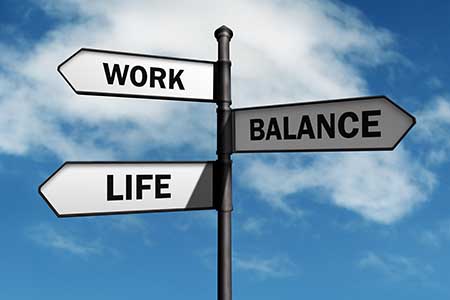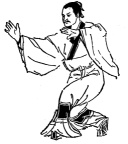 Is Tai Chi beneficial for stress and anxiety relief? Is is helpful in the prevention and management of stress, anxiety and/or depression? Is it effective for mental health management?
Is Tai Chi beneficial for stress and anxiety relief? Is is helpful in the prevention and management of stress, anxiety and/or depression? Is it effective for mental health management?
First, let’s explain a little about stress.
Stress comes from competing demands on time, energy and attention; the need to make decisions and choices; risk and danger is both physical and emotional.
Stress is modern living. It causes physical and emotional diseases. But it is also absolutely necessary. Stress is what gets us moving, making decisions, taking action, generating new ideas. Chronic stress, however, is bad because it makes our body focus on short-term emergencies at the expense of long-term regeneration.
Stress generates what is known as the “fight or flight response” in our mind and body. Our body’s physiological responses are superbly engineered for dealing with short-term physical emergencies. When we sit around and worry about stressful things, we turn on the same physiological responses and they are potentially a disaster when provoked chronically for psychological or other reasons. This is experienced as “anxiety”. There is a large body of evidence suggesting that long-term “turning-on” of these physiological processes through worry can contribute to serious physical and mental illness.
The physical cost of stress
The “fight of flight response” is designed to get you out of immediate danger: your body mobilises energy and delivers it where it is needed most. Glucose and amino acids are released from storage in your fat cells, your liver, and your muscles. Heart rate, blood pressure and breathing rate go up. Blood supply is shunted from the organs (except the heart and lungs) to the skeletal muscles. Pain is suppressed, and the mind takes on an unusual clarity. Digestion shuts down, regenerative processes are put on hold, reproductive urges and capabilities dwindle, and, for some unexplained reason, the body starts to actively dismantle the immune system.
These are the sort of costly things your body has to do to respond effectively in an emergency. If you experience every day as an emergency, you will pay the price.
How Tai Chi reduces stress reactions
Stress and anxiety relief with tai chi training is effective. The mental focus of the mind leading the movement, thinking only of the movement, interferes with and turns off the worry process. With its attention to detail, the balance and coordination required by the slow, controlled movements, Tai Chi leaves no mind space for ruminating on the hassles of the day. The slow, flowing shifts of balance, the regular deep breathing, the harmonious turning of the limbs, the slow, pulsing openings and closings of the Tai Chi forms calm and relax the mind and body.
Tai Chi as a way of helping to reduce depression
What is Depression?
The word “depression” is often used to describe the feelings of sadness which all of us experience at some times in our lives. It is also a term used to describe a form of mental illness called clinical depression.
Because depression is so common, it is important to understand the difference between unhappiness and sadness in daily life and the symptoms of clinical depression.
When faced with stress, such as the loss of a loved one, relationship breakdown or great disappointment or frustration, most people will feel unhappy or sad. These are emotional reactions that are appropriate to the situation and will usually last only a limited time. These reactions are not regarded as clinical depression, but are a part of everyday life.
The term “clinical depression” describes not just one illness but a group of illnesses characterised by excessive or long-term depressed mood, which affects the person’s life. Clinical depression is often accompanied by feelings of anxiety. Whatever the symptoms and causes of depression, treatment is very effective.
Depression is the most common primary care psychiatric diagnosis, with the prevalence of major depression being about five per cent of men and 10 per cent of women. These rates seem to be on the rise, which is alarming, as about 15 per cent of people suffering from severe major depressive disorders will die by suicide.
Depressed people can have symptoms ranging from mild to severe. These include a depressed mood, loss of ability to experience pleasure, a loss of interest in usually enjoyable activities, a loss of motivation, changes in sleep, appetite, weight, energy and motor activity.
Other dysfunctions include concentration problems, self-deprecation and suicidal thoughts. Appropriate treatment may include psychotherapy, anti-depressant medication and/or electro convulsant therapy. However, physicians are now using exercise as an important adjunct treatment for their depressed (and anxious) patients.
Exercise reduces depression, anxiety and stress
 Recent evidence has shown that exercise is as effective as psychotherapy and anti-depressant drug therapy in treating mild to moderate depression, and even more effective when used in conjunction with the conventional therapies.
Recent evidence has shown that exercise is as effective as psychotherapy and anti-depressant drug therapy in treating mild to moderate depression, and even more effective when used in conjunction with the conventional therapies.
How does exercise help depression?
Psychological theories:
- Distraction from stressful stimuli.
- Exercise as a way of regaining control of one’s body and life (as depression can be a person’s response to loss of control).
- Improved social interaction that often accompanies participation in sports.

Biological mechanisms:
- Alterations of chemical substances in the brain (usually an increase), which can reverse the low levels found in persons who are depressed.
- Another mechanism theorised as helpful is the thermogenic effect of exercise (elevation of body temperature) that could have antidepressant effects.
Qualities of Tai Chi and its benefits for depression
Tai Chi is a form of exercise which is uniquely suitable to assist people who are suffering from depression and/or anxiety to take some control in managing their own condition. Tai Chi is both aerobic and anaerobic exercise. It is one of the best low impact aerobic exercises known, as it maintains the correct heart rate for the required amount of time, and at the same time is an extremely gentle exercise, gently stretching every muscle and tendon in the body. And to maintain motivation, it’s more interesting than walking or jogging.
- A major aim of Tai Chi is to foster a calm and tranquil mind, focused on the precise execution of the exercises. Learning to do them correctly provides a practical avenue for learning about such things as balance, alignment, fine-scale motor control, rhythm of movement, the genesis of movement from the body’s vital centre, and so on. Thus the practice of Tai Chi can in some measure contribute to being able to better stand, walk, move, run, etc. in other spheres of life as well. Many practitioners notice benefits in terms of correcting poor postural, alignment or movement patterns which can contribute to tension or injury. Furthermore the meditative nature of the exercises is calming and relaxing in and of itself.
- One of the aspects of depression which is both a cause and an outcome of the condition is loss of self-esteem and of the sense of personal efficacy. In the Tai Chi Forms there is a graded development in demand (both physical and mental) as the form gradually increases its complexity of movements and requirement for physical strength. In this way, participants experience mastery of a skill that is sufficiently challenging to warrant respect of their achievement, while the stepwise building on previous achievements guarantees success
- The forms are designed so that the sequence of movements provides gradually increasing requirements for coordination (Stroke the Peacock’s Tail) and balance (Golden Cockerel Stands on One Leg). These abilities are of concern to most beginner students, and people suffering from depression and/or anxiety require an even higher level of consideration for a potential lack in confidence. At the same time, the focus required to master these skills provides an excellent diversion from troubling preoccupations.
- A balance between repetition and variety enables the maintenance of interest and motivation, together with the reassurance of becoming familiar with each movement through repetition.
- Movements are done on both left and right sides to provide balanced development of the body and to alleviate tiredness.
- The forms are designed in discrete sections so that participants are able to quickly achieve and identify “packages” or skills. This facilitates the recognition of achievement at frequent intervals which is an aid to motivation and the development of confidence and self-esteem.
Clinical Depression is not a condition to take lightly, or to self-treat without expert care and supervision. Although Tai Chi can be an important aid to recovery and management of this condition, it is essential that a depressed person seeks expert medical and/or psychological advice.
In summary, we have found tai chi to be very effective in stress anxiety relief. If you’d like more details on starting tai chi classes, please call 9796-1066 or contact us here.
More articles can be found in our Articles section.
